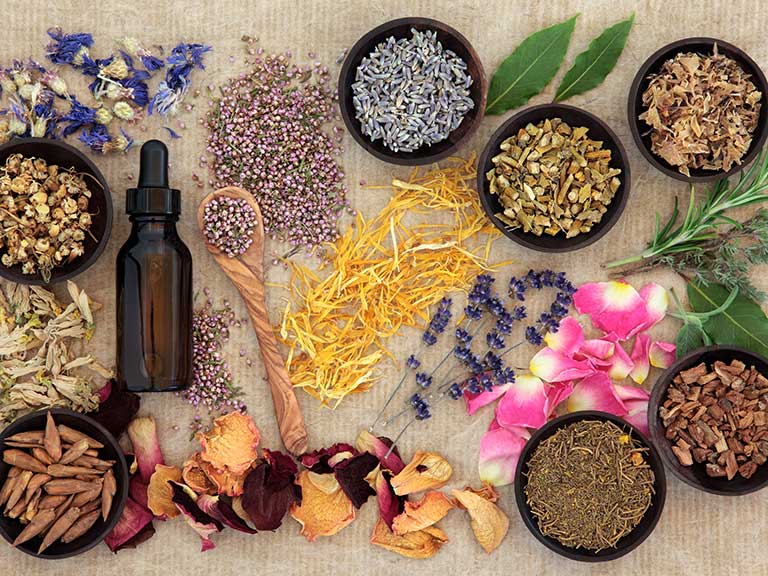In a world where modern medicine often takes center stage, the age-old practice of using herbal remedies for healing is experiencing a resurgence in popularity. From ancient civilizations to contemporary holistic practitioners, the use of herbal remedies has been embraced for its natural healing properties and potential to promote overall wellness. Join us as we explore the healing power of herbal remedies and discover how they can contribute to your journey towards optimal health and well-being.
Understanding Herbal Remedies
Herbal remedies encompass a wide range of natural substances derived from plants, including leaves, flowers, roots, bark, and seeds. These botanicals contain bioactive compounds such as phytochemicals, antioxidants, vitamins, and minerals that exert therapeutic effects on the body. Herbal medicine, also known as phytotherapy or botanical medicine, relies on the use of herbal remedies to prevent and treat various health conditions.
A Brief History of Herbal Medicine
The use of herbal remedies for medicinal purposes dates back thousands of years, with evidence of herbal preparations found in ancient civilizations such as Egypt, China, India, and Greece. Herbal medicine played a central role in traditional healing systems such as Ayurveda, Traditional Chinese Medicine (TCM), and Native American medicine, where plants were revered for their healing properties and spiritual significance. Over time, herbal knowledge was passed down through generations, evolving into the diverse array of herbal traditions practiced around the world today.
The Science Behind Herbal Remedies
While herbal remedies have been used for centuries based on empirical observations and anecdotal evidence, modern scientific research has shed light on their pharmacological mechanisms and therapeutic potential. Studies have shown that many medicinal plants possess anti-inflammatory, antimicrobial, analgesic, and antioxidant properties that can benefit various aspects of health. Additionally, advances in phytochemistry and pharmacognosy have enabled researchers to identify and isolate bioactive compounds in plants, paving the way for the development of herbal supplements and pharmaceutical drugs.
Common Herbal Remedies and Their Benefits
There is a vast array of herbal remedies available, each with its unique therapeutic properties and health benefits. Here are some commonly used herbal remedies and their potential applications:
- Echinacea: Known for its immune-boosting properties, echinacea is often used to prevent and treat the common cold, flu, and other respiratory infections.
- Ginger: Renowned for its anti-nausea and anti-inflammatory effects, ginger is commonly used to alleviate digestive discomfort, motion sickness, and menstrual cramps.
- Turmeric: Rich in curcumin, turmeric exhibits potent anti-inflammatory and antioxidant properties, making it beneficial for reducing inflammation, supporting joint health, and protecting against chronic diseases.
- Peppermint: Peppermint is prized for its soothing effects on the digestive system, helping to relieve symptoms of indigestion, bloating, and irritable bowel syndrome (IBS).
- Chamomile: Chamomile is renowned for its calming and sedative effects, making it useful for promoting relaxation, reducing anxiety, and improving sleep quality.
- Ginseng: Ginseng is revered for its adaptogenic properties, which help the body cope with stress and promote overall resilience and vitality.
- Garlic: Garlic contains allicin, a compound with potent antimicrobial and cardiovascular benefits, making it valuable for supporting immune function and heart health.
- Valerian: Valerian is a popular herbal remedy for insomnia and sleep disorders, thanks to its sedative effects on the central nervous system.
Incorporating Herbal Remedies into Your Wellness Routine
Integrating herbal remedies into your wellness routine can be a simple and effective way to support your health and vitality. Here are some tips for incorporating herbal remedies into your daily life:
- Consult with a Qualified Practitioner: Before starting any herbal regimen, it’s essential to consult with a qualified herbalist, naturopath, or healthcare provider who can assess your individual health needs and recommend appropriate herbal remedies.
- Choose High-Quality Products: Select high-quality herbal products from reputable sources to ensure purity, potency, and safety. Look for products that have been standardized for active ingredients and tested for quality and purity.
- Start Slowly and Monitor Effects: When trying a new herbal remedy, start with a low dose and gradually increase as needed while monitoring for any adverse effects or interactions with medications.
- Be Consistent: Consistency is key when it comes to herbal therapy. Incorporate herbal remedies into your daily routine and give them time to exert their beneficial effects on your body.
- Listen to Your Body: Pay attention to how your body responds to herbal remedies and adjust your dosage or regimen accordingly. Trust your intuition and listen to your body’s signals.
- Practice Holistic Health: Herbal remedies work best when combined with a holistic approach to health that includes a balanced diet, regular exercise, stress management, adequate sleep, and other lifestyle factors that promote overall well-being.
- Stay Informed: Keep yourself informed about the latest research and developments in herbal medicine, but be discerning about the sources of information you rely on. Look for evidence-based resources and consult reputable experts in the field.
- Respect Nature: Remember that herbal medicine is a partnership with nature, and it’s essential to respect the plants and their traditional uses. Harvest herbs ethically and sustainably, and support efforts to preserve plant biodiversity and traditional herbal knowledge.
Conclusion
In conclusion, the healing power of herbal remedies offers a natural and holistic approach to health and wellness that has stood the test of time. From ancient healing traditions to modern scientific research, herbal remedies continue to play a valuable role in supporting the body’s innate ability to heal and thrive. By incorporating herbal remedies into your wellness routine with knowledge, intention, and respect, you can tap into the profound wisdom of nature and embark on a journey towards optimal health and vitality.

